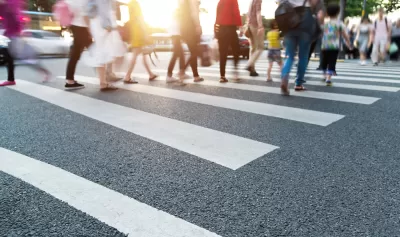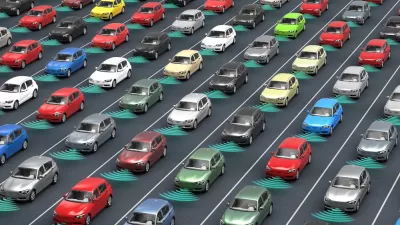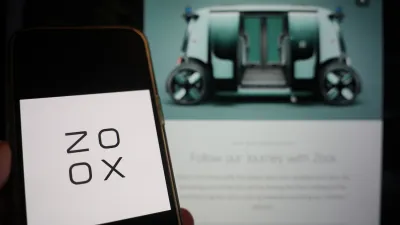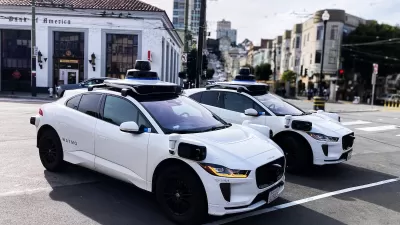With some historical perspective, transportation planners and policymakers can avoid the mistakes of the past and develop a transportation system that acknowledges the needs of all road users.

In a commentary published on Route Fifty, Kevin DeGood calls for “a balanced transportation system that also accommodates pedestrians, transit riders and cyclists” as autonomous vehicles become more commonplace on U.S. streets.
While the debate on when autonomous cars will be fully ready for self-driving operations rages on, DeGood argues that now is the time for policymakers to avoid heading “down a path that deepens our dependence on cars at the expense of sustainable, affordable and equitable alternatives such as public transportation, biking and walking.”
The article names several studies of autonomous vehicle technology that fail to include pedestrians, or even pedestrian infrastructure, in their assessments of self-driving vehicle safety. “And that’s the problem. The infrastructure we build today and how we program AVs will shape our lives and communities for generations to come.”
In the early 20th century, when cars were first introduced, policies led to “a transportation system dominated by driving” and laser-focused on moving cars, fast. DeGood warns that “Accommodating pedestrians, transit riders and cyclists cannot be an afterthought. Communities and transportation systems must be built around people, not motor vehicles. A transportation system that only makes room for sophisticated AVs is a system and a future not worth having.”
FULL STORY: What kind of transportation future do we want?

Planetizen Federal Action Tracker
A weekly monitor of how Trump’s orders and actions are impacting planners and planning in America.

Congressman Proposes Bill to Rename DC Metro “Trump Train”
The Make Autorail Great Again Act would withhold federal funding to the system until the Washington Metropolitan Area Transit Authority (WMATA), rebrands as the Washington Metropolitan Authority for Greater Access (WMAGA).

The Simple Legislative Tool Transforming Vacant Downtowns
In California, Michigan and Georgia, an easy win is bringing dollars — and delight — back to city centers.

Albuquerque’s Microtransit: A Planner’s Answer to Food Access Gaps
New microtransit vans in Albuquerque aim to close food access gaps by linking low-income areas to grocery stores, cutting travel times by 30 percent and offering planners a scalable model for equity-focused transit.

This City Will Pay You to Meet Your Neighbors
A North Kansas City grant program offers up to $400 for residents to throw neighborhood block parties.

Commentary: Our Silence Will Not Protect Us
Keeping our heads down and our language inoffensive is not the right response to the times we’re in. Solidarity and courage is.
Urban Design for Planners 1: Software Tools
This six-course series explores essential urban design concepts using open source software and equips planners with the tools they need to participate fully in the urban design process.
Planning for Universal Design
Learn the tools for implementing Universal Design in planning regulations.
Smith Gee Studio
City of Charlotte
City of Camden Redevelopment Agency
City of Astoria
Transportation Research & Education Center (TREC) at Portland State University
US High Speed Rail Association
City of Camden Redevelopment Agency
Municipality of Princeton (NJ)





























